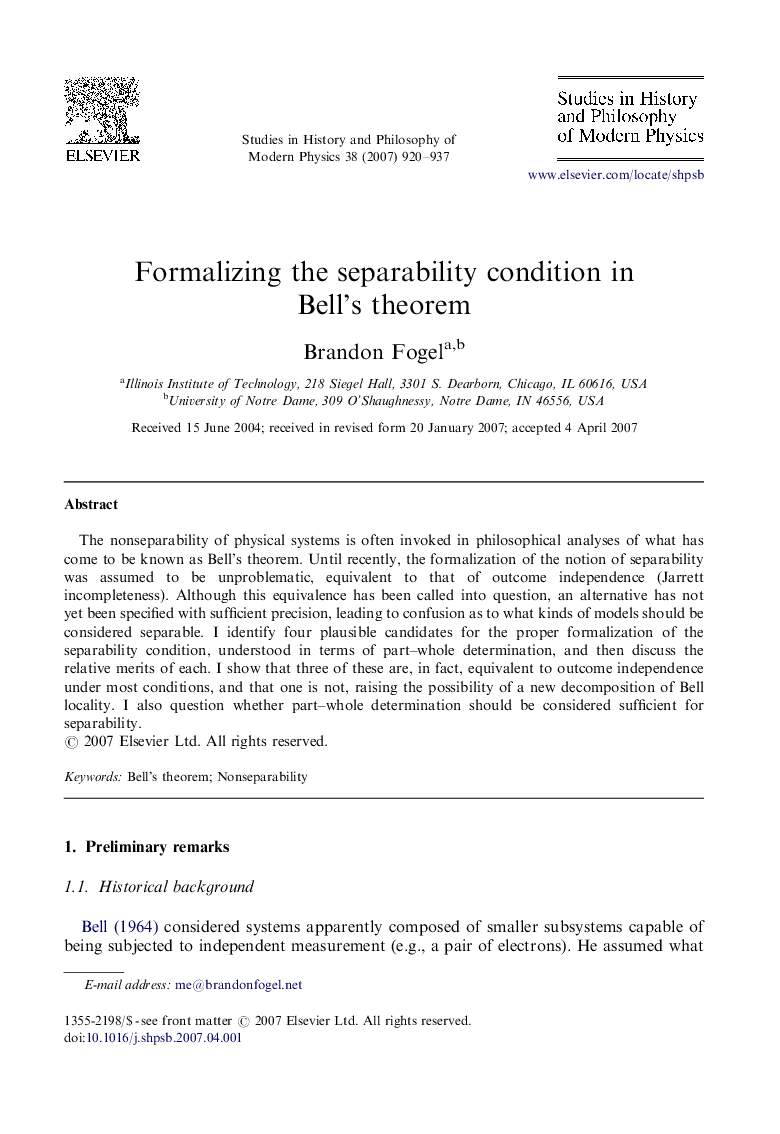| Article ID | Journal | Published Year | Pages | File Type |
|---|---|---|---|---|
| 1161450 | Studies in History and Philosophy of Science Part B: Studies in History and Philosophy of Modern Physics | 2007 | 18 Pages |
Abstract
The nonseparability of physical systems is often invoked in philosophical analyses of what has come to be known as Bell's theorem. Until recently, the formalization of the notion of separability was assumed to be unproblematic, equivalent to that of outcome independence (Jarrett incompleteness). Although this equivalence has been called into question, an alternative has not yet been specified with sufficient precision, leading to confusion as to what kinds of models should be considered separable. I identify four plausible candidates for the proper formalization of the separability condition, understood in terms of part-whole determination, and then discuss the relative merits of each. I show that three of these are, in fact, equivalent to outcome independence under most conditions, and that one is not, raising the possibility of a new decomposition of Bell locality. I also question whether part-whole determination should be considered sufficient for separability.
Keywords
Related Topics
Physical Sciences and Engineering
Physics and Astronomy
Physics and Astronomy (General)
Authors
Brandon Fogel,
